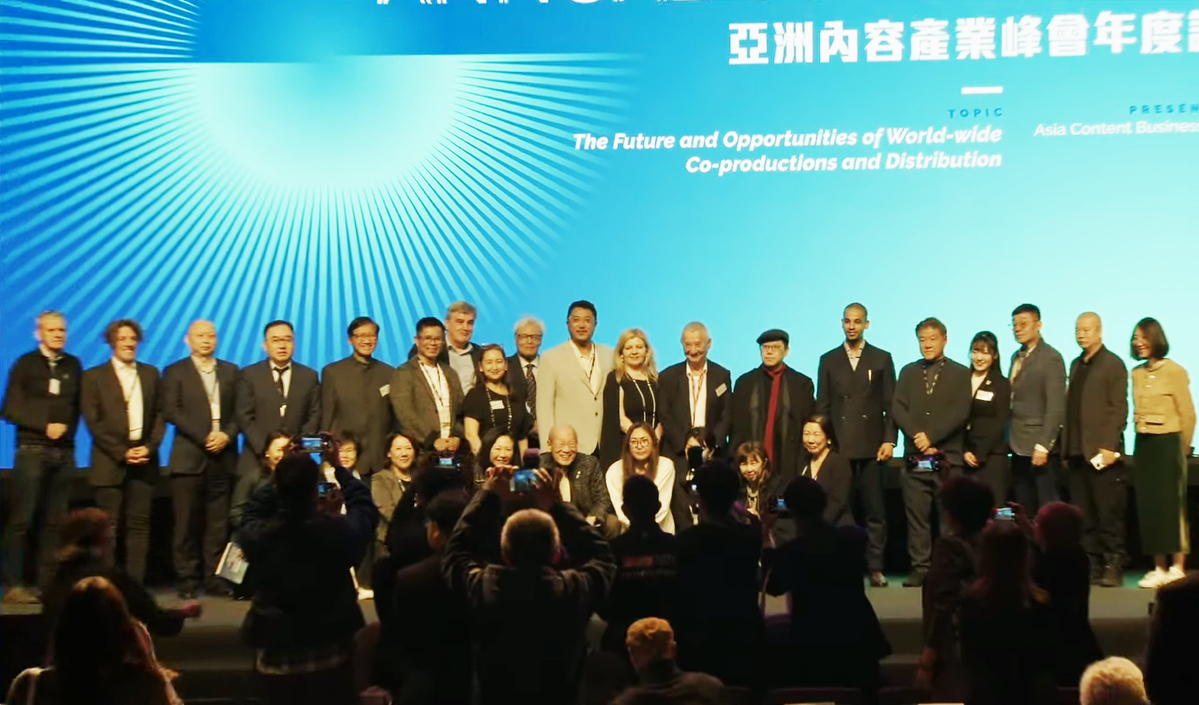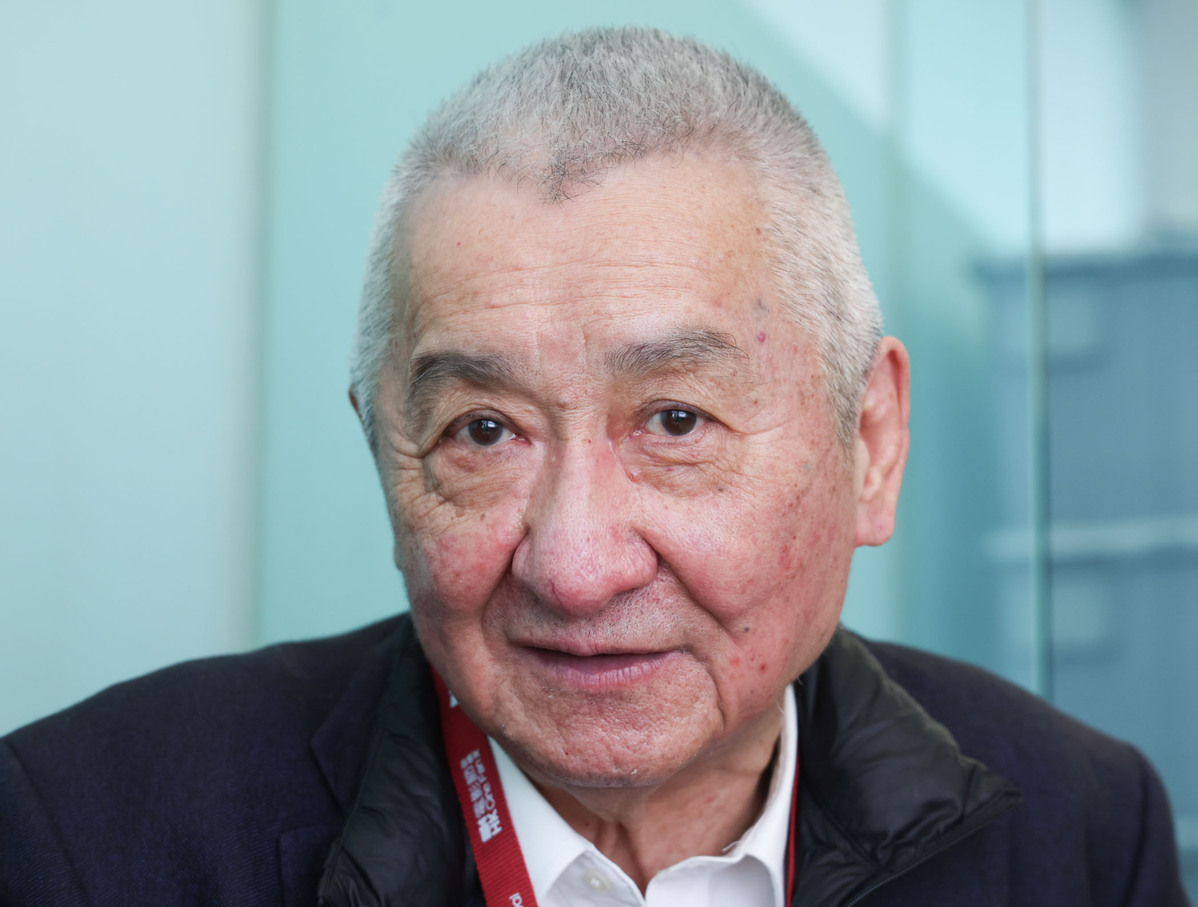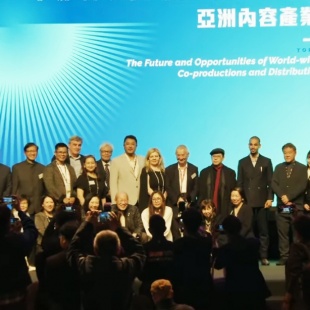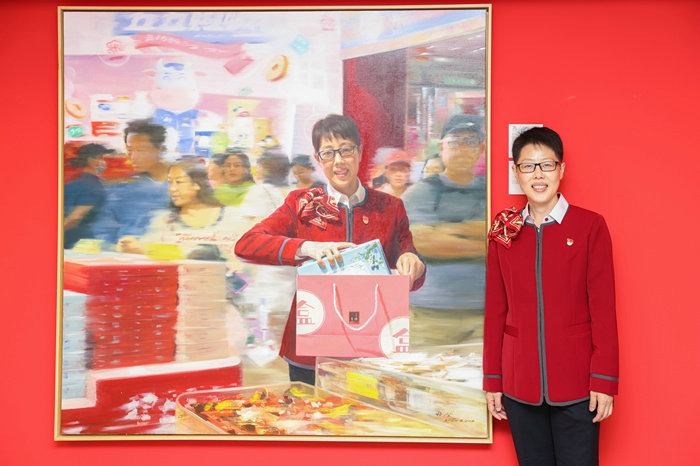ACBS banking on Asian creative content for movie and TV industries


Asian film and television industries need to work together to develop their own cultural products and learn from each other's culture for shared growth, experts said.
"A good reason for (co-production) is if you have several countries working on the film together, that means there are several different cultures that we have to put together," said Fred Wang Cheung-yue, chairman of Hong Kong-based pan-Asian facilities and movie services group Salon Films.
"Hopefully, this will create more diversity and collaboration between the different societies," said Wang, who was speaking to China Daily on the sidelines of the Asia Content Business Summit in Hong Kong.
With the theme "The Future and Opportunities of Worldwide Co-productions and Distribution", the summit, co-organized by Salon Media Lab, was held on March 12 during the Hong Kong International Film and TV Market.

Noting that almost all Asian countries have been traditionally influenced by Hollywood movies, Wang said it is important for them to first try to develop their own culture when it comes to developing their own content.
"With that, they can look at the outside foreign culture, not just Hollywood or Western culture, but Asia," said Wang, adding that there are a lot of things that Asian countries can learn from each other.
Wang said cooperation in the content industry is about exchanging cultures, and he hopes that through cooperation, industry players from different countries can share the good aspects of each other's culture and make better cultural products together.
To promote regional co-production, Wang said the summit has come up with an idea to set up an Asian Content Bank, which can be a platform where participating countries can make their media productions accessible to those who are interested in them, and serve as a vehicle to facilitate co-production among regional countries.
But in order to establish the content bank, Wang said there are three major challenges that need to be dealt with — the location to host the system, religious and policy issues, and technological support.
Wang said it is necessary for Asian countries to jointly establish this content bank and once it is set up, "it will make the economy, culture, tourism and education easier for a united Asian cultural region".
The Asia-Pacific video industry is now valued at $145 billion in revenue, and is expected to reach $165 billion by 2028, according to research and consultancy firm Media Partners Asia.
For Hong Kong, once known as "Oriental Hollywood", Wang said the city's movie industry has been popular due to its good local culture, and now it should be more open and bring more new generations into the content industry to form new culture and create new things to attract the audience.
Noting South Korea's content industry has become increasingly popular around the globe, Chung Young-hong, CEO of Paper Barn Studios in South Korea, said there are still not enough policies to support co-productions between domestic and international filmmakers.
"It is truly mesmerizing to see how much people appreciate Korean content," Chung said during the summit.

He added that South Korea has not been a leader in promoting international production.
The revenue of South Korea's content industry reached a record-high at $114 billion in 2022, up 9.4 percent from the previous year, according to a report by the country's Ministry of Culture, Sports and Tourism.
Content-related exports also hit $13.24 billion in 2022, a year-on-year increase of 6.3 percent, the report said.
With more and more South Korean producers starting to be aware of opportunities in co-production, Chung said there are also more initiatives and policies coming out to promote international productions.
For example, for projects in production, the Korean Film Council provides a cash rebate of up to 25 percent of the expenses incurred domestically for internationally co-produced and foreign projects shot in South Korea, Chung said.
Having been involved in the South Korean film scene since 1999, Chung has worked with major production companies such as CJ ENM, Showbox, and Dexter Studios.
With his vast experience, Chung told China Daily that he hopes to discover good intellectual content, such as webtoons and fiction, in South Korea and bring them to major markets like China and the United States to create international productions.
While it is easier for international audiences to become attracted to thriller stories, Chung said what is more important is not the content's genre but "whatever is more local, more authentic and more Asian".
Chung said the rapid advancement of technology has made it more difficult to distinguish original stories written by the writers from those by artificial intelligence (AI).
"My friend actually sent me this story that was written by AI, which was actually very interesting," said Chung. "I was really shocked."
Still, Chung said he will not accept AI-written stories because they cannot be counted as originally created artworks.
Noting the content industry in many Asian countries is booming, Chung said he believes there will be more opportunities and it is important for the young generation to focus on what they are doing and be prepared.
"I hope that people will not be misled by (the negative reports of) technology because technology will be very good, faster and better used for the future," said Wang from Salon Films, adding that it is important to build a good and healthy content library.
"Whatever you create with AI, the quality will depend on how good your source materials are," said Wang.
kelly@chinadailyapac.com





































